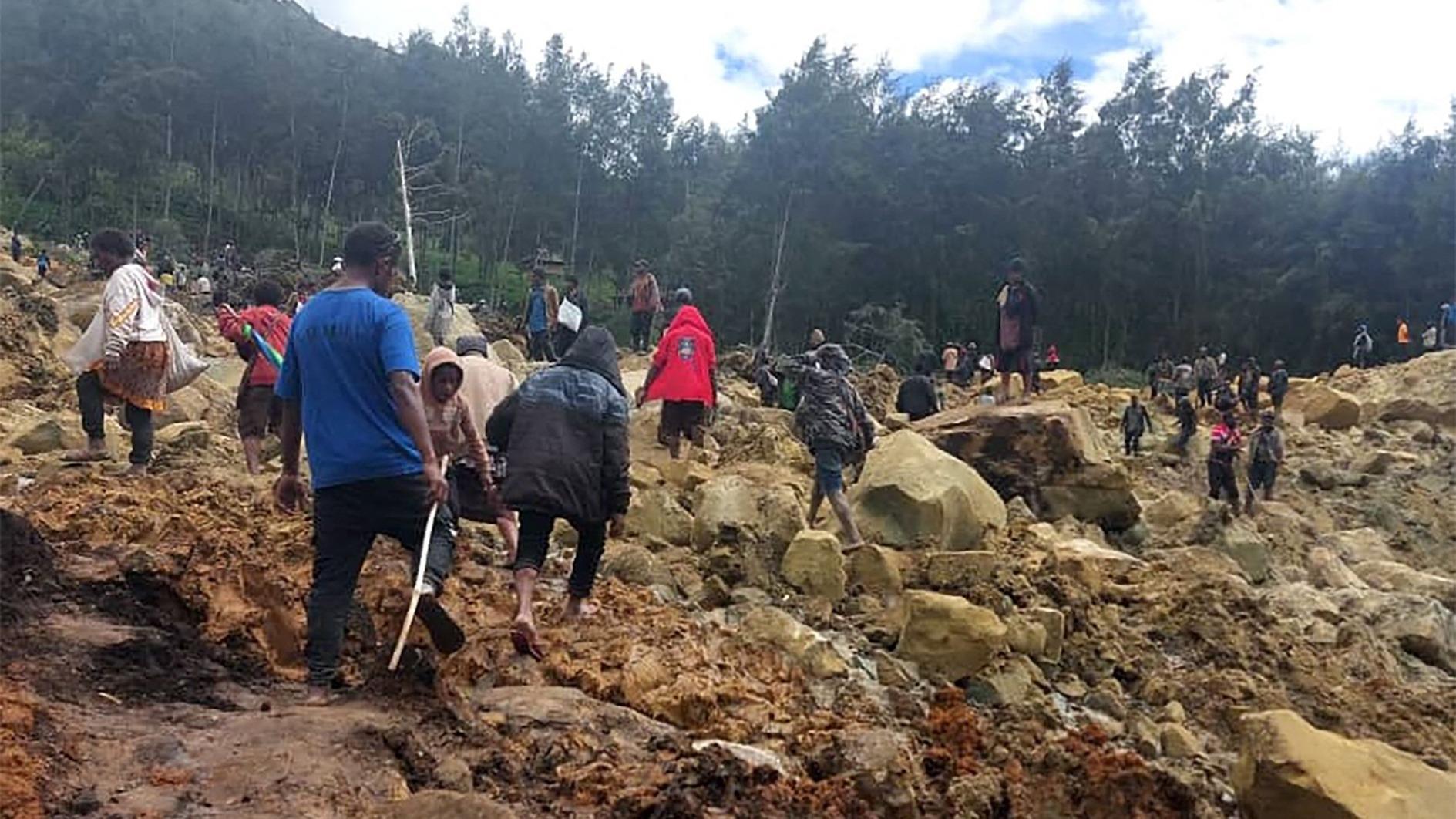
Nearby tribal violence has complicated recovery efforts at a catastrophic landslide in Papua New Guinea, aid workers said Sunday, as the search continued for hundreds of villagers feared dead under the rubble.
A once-bustling hillside village in Enga province was almost completely obliterated when the landslide struck in the early hours of Friday morning, burying scores of homes and the people sleeping inside.
While the official death toll could take days or weeks to compile, aid agencies and local leaders fear between 100 and 300 people may have perished.
United Nations official Serhan Aktoprak said tribal fighting had broken out along the only remaining route into the disaster zone.
While Aktoprak said the violence was "not related to the landslide", Papua New Guinea's military was providing a "security escort" to ensure the safe passage of aid convoys.
The village was home to almost 4,000 people, serving as a bustling trading post for alluvial miners who panned for the gold in the highlands region.
Five bodies had been pulled from the debris by Saturday night, Aktoprak said.
More than 100 houses were now estimated to have been destroyed, he added, alongside a makeshift school and a number of trading stalls.
"Working across the debris is very dangerous and the land is still sliding," he said from Port Moresby, relaying the concerns of a U.N. emergency response team working in Enga.
At some points, the landslide — a mix of car-sized boulders, uprooted trees and churned-up earth — was thought to be eight meters (26 feet) deep.
Aid agencies said the catastrophe had effectively wiped out the village's livestock, food gardens and sources of clean water.
Heartbreaking scenes
Locals suspected the landslide may have been triggered by heavy rains that have saturated the region in recent weeks.
Papua New Guinea has one of the wettest climates in the world, according to the World Bank, with the heaviest downpours concentrated in the humid highland regions.
Images showed barefoot workers shifting the earth with shovels and axes, while others picked through the mangled piles of corrugated iron that once provided shelter.
Much-needed heavy machinery was expected to begin arriving at the site on Sunday.
Steven Kandai, a community leader at the scene, has told AFP that many residents had no time to flee for their lives.
"All of a sudden there was a big landslip. The mountain just collapsed all of a sudden while people were still sleeping," he said, adding their homes were "completely buried".
President Joe Biden said he was "heartbroken by the loss of life and devastation", adding the United States stood "ready to assist" in recovery efforts with partners including Australia and New Zealand.
Prime Minister Anthony Albanese said that "all Australians grieve for our brothers and sisters in Papua New Guinea after the terrible landslide".